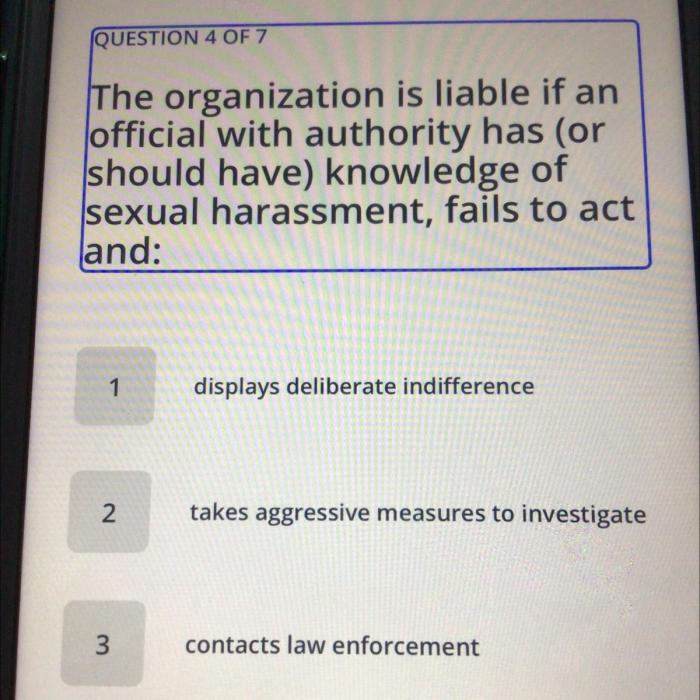The organization may be liable if an official with authority takes center stage, this opening passage beckons readers with into a world crafted with good knowledge, ensuring a reading experience that is both absorbing and distinctly original.
Organizations can be held liable for the actions of their officials under certain circumstances. This liability arises from the legal principles governing the relationship between organizations and their officials, the scope of an official’s authority, and the types of actions for which organizations can be held responsible.
Understanding these principles is crucial for organizations to mitigate their liability and protect themselves from legal consequences.
Legal Framework: The Organization May Be Liable If An Official With Authority

The legal principles that govern the liability of organizations for the actions of their officials are based on the concept of respondeat superior. This doctrine holds that an organization is liable for the wrongful acts or omissions of its employees or agents if those acts or omissions were committed within the scope of their employment or agency.
There are a number of factors that courts consider when determining whether an organization is liable for the actions of its officials. These factors include:
- Whether the official was acting within the scope of their authority
- Whether the organization had knowledge of the official’s actions
- Whether the organization took reasonable steps to prevent the official’s actions
Authority of Officials
The concept of “authority” in the context of organizational liability refers to the power that an official has to act on behalf of the organization. Officials can acquire authority in a number of ways, including:
- By being appointed to a position of authority by the organization
- By being delegated authority by an official who has the authority to do so
- By acting in a way that is consistent with the organization’s customs and practices
The limits of an official’s authority are determined by the organization’s bylaws, policies, and procedures. Officials who exceed their authority may not be able to bind the organization to their actions.
Scope of Liability
Organizations can be held liable for a variety of actions, including:
- Breach of contract
- Negligence
- Fraud
- Discrimination
- Harassment
The factors that courts consider when determining the scope of an organization’s liability include:
- The nature of the action
- The extent of the organization’s involvement in the action
- The foreseeability of the action
Mitigation of Liability, The organization may be liable if an official with authority
There are a number of steps that organizations can take to mitigate their liability for the actions of their officials. These steps include:
- Developing and implementing clear policies and procedures
- Providing training to officials on the organization’s policies and procedures
- Supervising officials to ensure that they are complying with the organization’s policies and procedures
- Taking prompt action to address any complaints of misconduct
Organizations that implement effective mitigation strategies can reduce their risk of being held liable for the actions of their officials.
FAQ Summary
What is the legal basis for holding organizations liable for the actions of their officials?
The legal basis for holding organizations liable for the actions of their officials is the principle of respondeat superior. This principle states that an employer is liable for the wrongful acts or omissions of its employees committed within the scope of their employment.
What are the defenses that organizations can raise to avoid liability for the actions of their officials?
Organizations can raise several defenses to avoid liability for the actions of their officials, including lack of authority, acting outside the scope of employment, and contributory negligence.
What steps can organizations take to mitigate their liability for the actions of their officials?
Organizations can take several steps to mitigate their liability for the actions of their officials, including providing proper training, establishing clear policies and procedures, and conducting regular audits.

